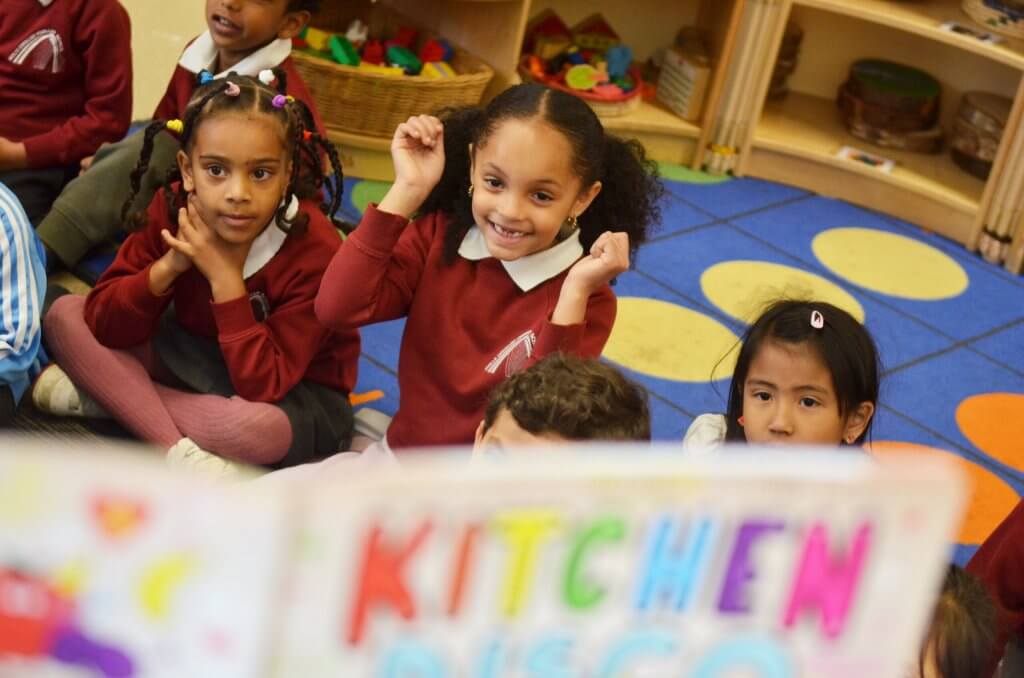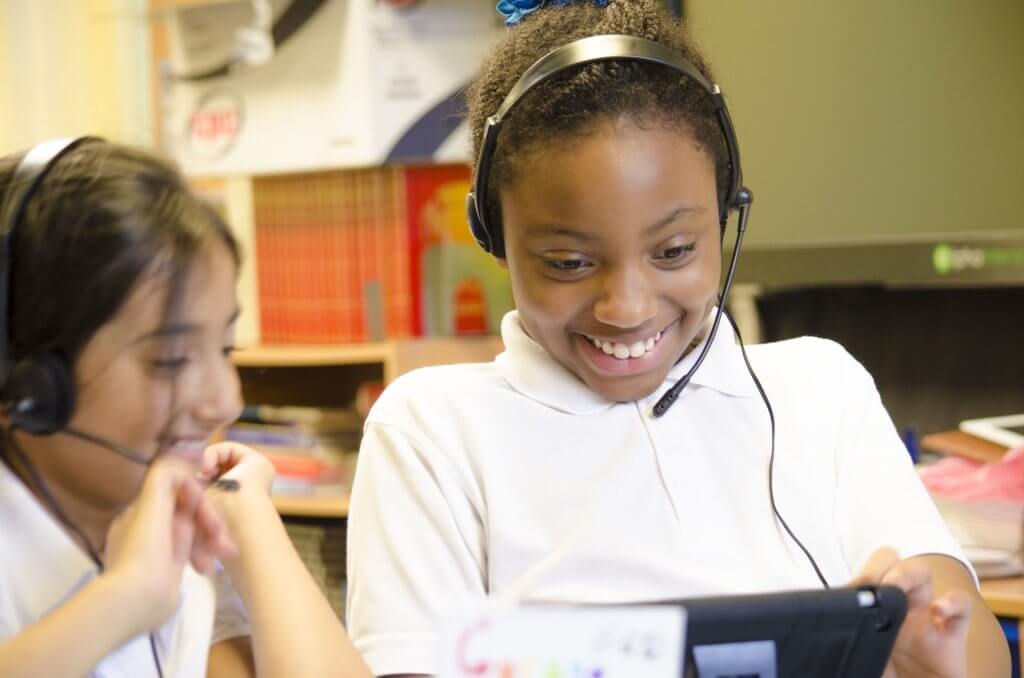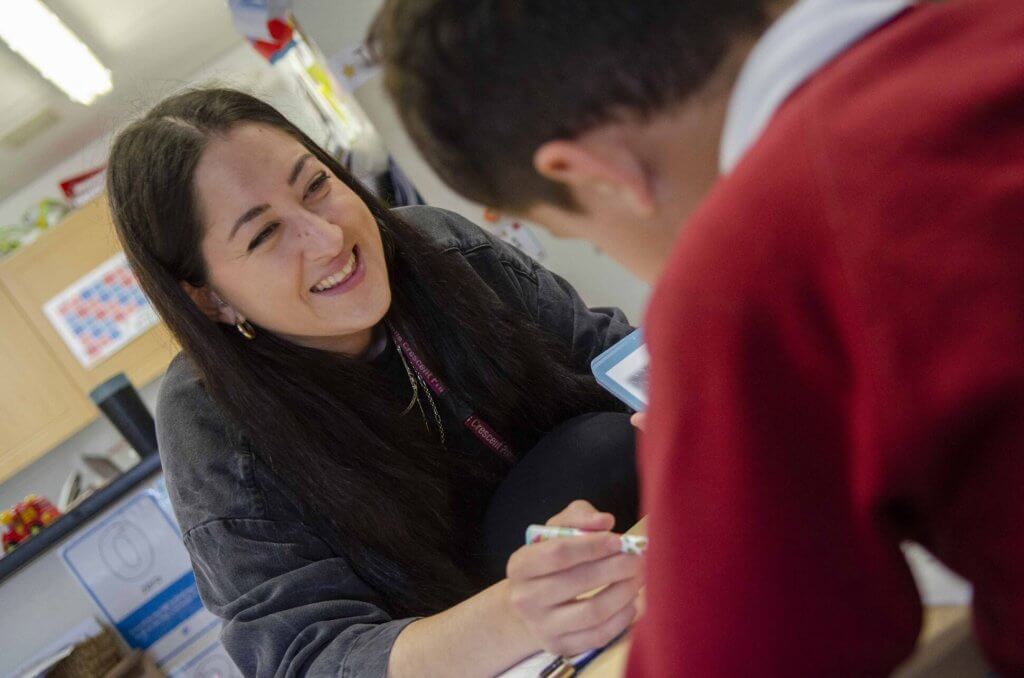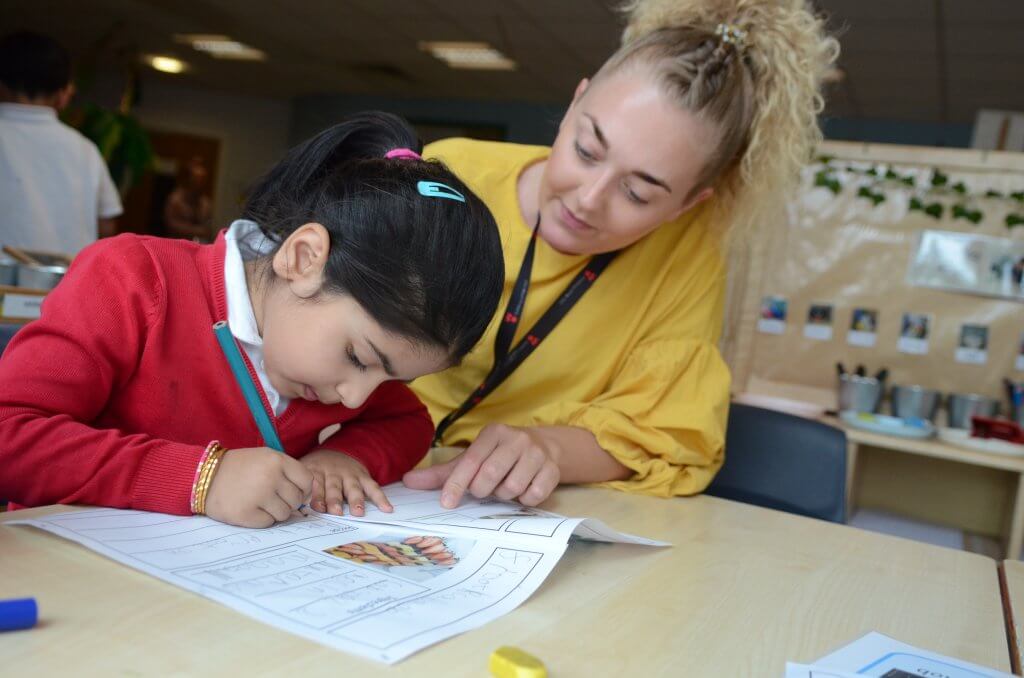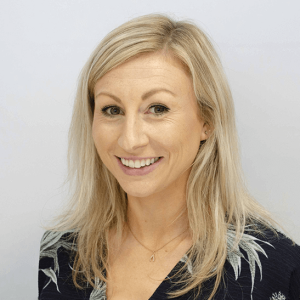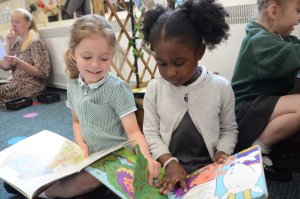“Schools (often) do not consider spoken language well in their English curriculum, although they understand that spoken language underpins pupils’ reading and writing development”
OFSTED, 2024
Following the recent publication of OFSTED’s English Subject Report, schools have been recognising their accomplishments in improving literacy provision to date and discussing ways to further adapt their approach to teaching English to support all children to succeed. In our previous blog, we looked at the implications for teaching, learning and leading Writing in primary schools from the report. In case you missed it, you can read our top takeaways for Writing here. In this blog, we focus on what the report has to say about teaching and leading Oracy and just how important spoken language is in the classroom and beyond.
“Reading and writing float on a sea of talk”
James Britton
We know that if a pupil cannot say or comprehend a word, they will almost certainly struggle to read it and use it in their own writing. As stated in the report: ‘Developing spoken language, including vocabulary, is essential for the academic progress of all children’. Oracy within education has two key roles: learning to talk and learning through talk (Voice 21). Our aim is to ensure the children become confident, effective communicators and begin to use these skills to aid their learning within all areas of the curriculum.
Teaching children and young people the skills they need to communicate is essential to close the attainment gap between disadvantaged pupils and their peers. OFSTED noted that, where they observed Oracy being taught effectively, ‘…teachers modelled the physical, emotional and social aspects of effective spoken communication, using examples of different forms of speech that pupils might not have encountered away from school’. It has been shown through numerous studies that young people’s academic success is closely linked to their ability to communicate effectively. However, the benefits far surpass attainment at school. For example, having the tools to express themselves will also help pupils to form relationships and look after their wellbeing, whilst having the confidence to present in front of an audience will greatly aid young people in an interview situation or even in their future careers. In order to facilitate this, we need to teach the following areas to all pupils:
- The ‘rules’ of social interaction – taking turns; identifying who is holding the conversation and how to judge when this can change; how pairs of language work, e.g. Q and A, greeting and response; how to fix what we say or what we don’t understand.
- Non-verbal cues – voice; volume; intonation; eye contact; pitch; pauses; pronunciation; posture; personal space.
- How to listen.
- How to speak.
Although Oracy makes up a third of the National Curriculum for English at primary school, it is often overlooked with OFSTED stating that ‘…most primary and secondary schools do not have an explicit curriculum for developing spoken language’. The study showed that in most primary schools ‘there are opportunities for debate and discussion in different subjects and for speaking in assemblies and annual productions’ however ‘not all pupils are able to take advantage of these experiences’.
The report recognises the fact that, since the publication of the Reading Framework (DfE) and the EEF’s guidance, many schools have thought carefully about communication, language and vocabulary development in Nursery and Reception classes. However, this planned progression rarely continues into Year 1 and beyond – which is where a change must be made. Explicitly teaching all children a rich vocabulary and the skills they need to become effective speakers and listeners, whilst weaving oracy skills through each lesson, will help close the gap so all children have the best possible opportunities for success.
It is essential that all children receive quality first teaching of speaking and listening skills through a curriculum tailored to their needs. The English Subject Report states that pupils need opportunities to ‘practise, refine and apply’ speaking and listening skills ‘in a range of different contexts and for a range of different audiences’. Once a thorough curriculum for Oracy is in place, teachers will be more skilled and confident in assessing pupils’ language and communication needs and deciding whether further intervention is required. OFSTED states that, ‘teachers often attribute pupils’ weaknesses in speaking to a lack of confidence rather than realising that they have not been taught what they need to know about the topic under discussion to be able to form and articulate worthwhile contributions’.
Speech & Language Therapy
Embedding a high-quality oracy education in school will not only equip your learners with the skills they need for success in school and later life, but it will also allow you to identify those who struggle with more complex speech, language and communication needs (SLCN).
Our Speech & Language Therapists can deliver a wide range of support, from whole school strategies and group interventions, through to individual assessments and tailored treatment programmes for children who require specialist support.
Our SALT team can also provide training for school leaders, SENCos, teachers and support staff, equipping you with the tools to create communication-friendly classrooms and close the oracy gap. To find out more, please get in touch.
Reviewing Your Practice
We know that oracy is important, but where to start? We have developed some key questions to support you to review your practice and consider your next steps:
Vocabulary
- Is there a planned progression in vocabulary? What does this look like across the curriculum? How are words chosen?
- Are pupils explicitly taught new words and given plenty of opportunities to practise using these, so their understanding becomes secure?
Speaking and Listening Skills
- Is there an oracy framework in place at your school?
- How are speaking and listening skills explicitly taught?
- Are all staff confident with how to teach and model effective speaking and listening skills?
- Are there ample opportunities for pupils to take part in discussions, performances and recitals? Do all pupils participate?
- Do pupils understand how to select and use the appropriate grammar and register for the given audience and purpose when speaking aloud?
Learning through Talk
- Do pupils orally rehearse sentences before writing?
- Do pupils have access to sentence stems in different areas of the curriculum to scaffold their spoken responses?
We are currently developing an Oracy and Spoken Language Audit and Review tool. If you would like to take part in our pilot scheme in Autumn 2024, please get in touch with our Literacy Lead Practitioner, Catherine Delaney at catherine.delaney@oneeducation.co.uk.
Reviewing existing practice is just the start. As the report notes, schools should ‘…make sure that the national curriculum requirements for spoken language are translated into practice, so that pupils learn how to become competent speakers’. This encompasses aspects such as ‘…how to participate constructively, including facing the audience, the right intonation, expression and volume of voice,‘ as well as providing pupils with plentiful opportunity to ‘…practise, refine and apply this knowledge in a range of different contexts and for a range of different audiences’. The report emphasises that speaking and listening in English lessons should not just be used as ‘a stepping stone to writing’; but rather an essential area of literacy in its own right.
To unpick more of the detail behind the report and really delve into how to implement the recommendations in a sustainable way, we are running a virtual training session on 30th April, ‘Telling Your Story: OFSTED’s English Subject Report and Your School’. For more information or to book a place for only £45 please click here to visit our website.
New Resources!
With all of this in mind, we have developed some new FREE resources to help schools to embed a consistent oracy curriculum.
Our ‘Guide to Oracy Across the Curriculum’ is a detailed oracy framework to support the development of speaking and listening skills from age 3 up to the end of primary school. This has been created to provide a comprehensive guide to the different areas of Oracy whilst providing links to resources and suggestions of how best to facilitate speaking and listening skills for all pupils in your setting.

Our adapted ‘Communication Pyramids’ for KS1 and KS2 are an easy-to-use assessment tool to help identify areas where support is needed for pupils struggling to meet age-related expectations.

Finally, the fantastic team at our partners, Peters Books have also put together a list of recommended texts for KS1 and KS2 that can be used as a stimulus for the development of oracy; whether this be through discussion, debates, drama, choral reading, performances or presentations.

We do hope that you find this resource a useful starting point for embedding an effective oracy curriculum in your school, helping all pupils acquire the spoken language and communication skills that underpin all areas of literacy. If you would like further support to enhance your oracy provision, our Literacy Team has a wealth of resources and proven strategies we can share with your school. To discuss how One Education can support you to review and develop your English curriculum please contact our Literacy Team Leader, Laura Buczko at laura.buczko@oneeducation.co.uk.
Please complete the form below and we will get in contact as soon as we can to help you with your query.

